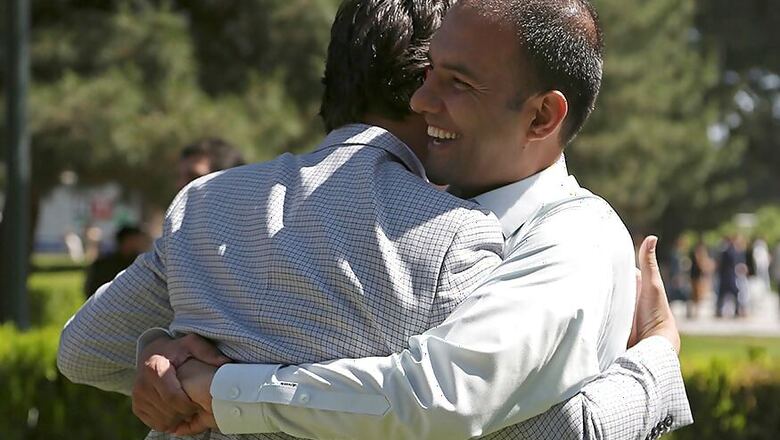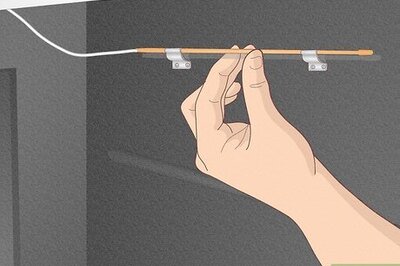
views
Eid-al-Adha or Eidul Azha will be celebrated by Muslims worldwide on August 12.
Eid-al-Adha or Eidul Azha coincides with the completion of the annual holy pilgrimage, Haj, and is known as the "festival of sacrifice" as it commemorates the willingness of Prophet Ibrahim to sacrifice his son to show his dedication and submission towards Allah.
Millions of Muslims carry out the final rites of the Haj in Saudi Arabia by throwing pebbles at the three columns, symbolic of the ‘shaitan’ or devil, in Mina on the eve of Eid-al-Adha or Eidul Azha.
According to the Quran and Islamic traditions, Allah tested Prophet Ibrahim's faith by commanding him twice to sacrifice his only son, Prophet Ismail, only to stay his hand when he obliged despite the devil trying to lead him astray.
To commemorate the event, Muslims slaughter livestock and distribute the meat in three equal parts: one for home, one for relatives and one for the poor.
The date of Eid-al-Adha or Eidul Azha keeps on changing every year because of the Islamic lunar calendar. Eid al-Adha or Eidul Azha is celebrated on the 10th day of the final and one of the most sacred months of the Islamic calendar: Dhu al-Hijjah.
Eid-al-Adha or Eidul Azha dates are announced once Islamic scholars’ “sight" the moon, marking the beginning of Dhu al-Hijjah.
Devotees dress up and wear perfumes or itr as they head for congregational Eid al-Adha prayers at mosques or Eidgahs (prayers grounds) any time after sunrise to just before the Zuhr or noon prayers.
The Eid-al-Adha or Eidul Azha namaaz or prayers consist of two rakats (units) with seven takbirs in the first Raka'ah and five Takbirs in the second Raka'ah.
The prayers are followed by a khutbah or sermon in which the imam or prayer leader delves on the importance of the festival.
After the prayers and sermon, the devotees head home to celebrate the occasion with their families, embracing each other and chanting Eid takbir along the way, typically by taking a different route so as to meet and greet more people.
People also visit the homes of friends and relatives to offer Eid-al-Adha greetings and special dishes are cooked and served to mark the occasion. The festivities continue till two or three days.
Follow News18 Lifestyle for more




















Comments
0 comment